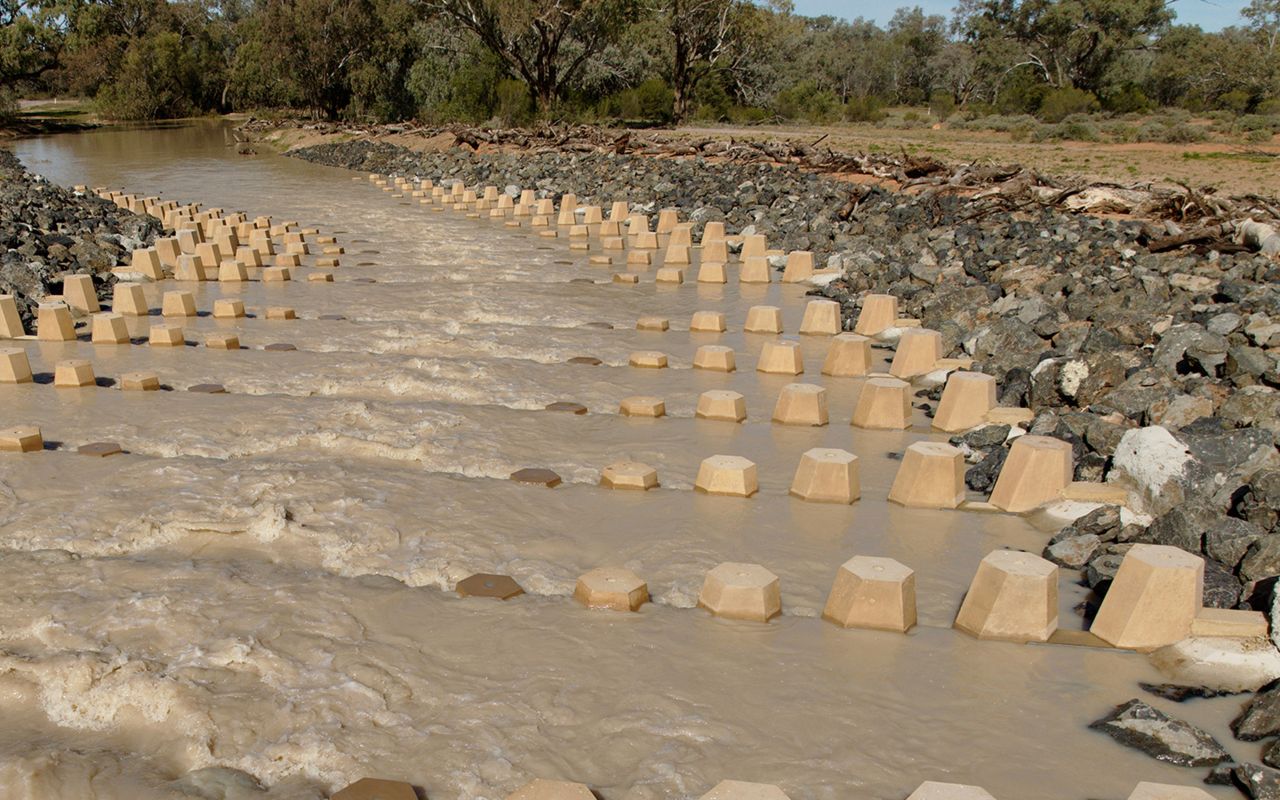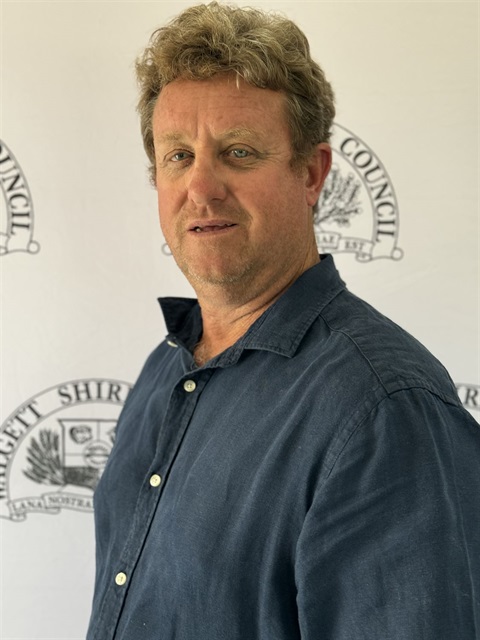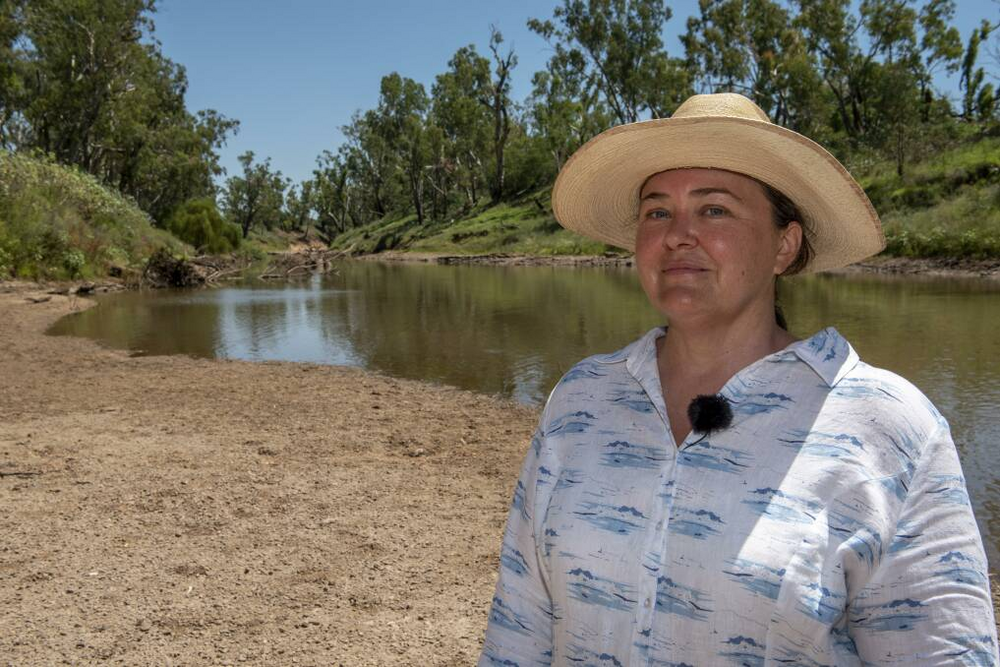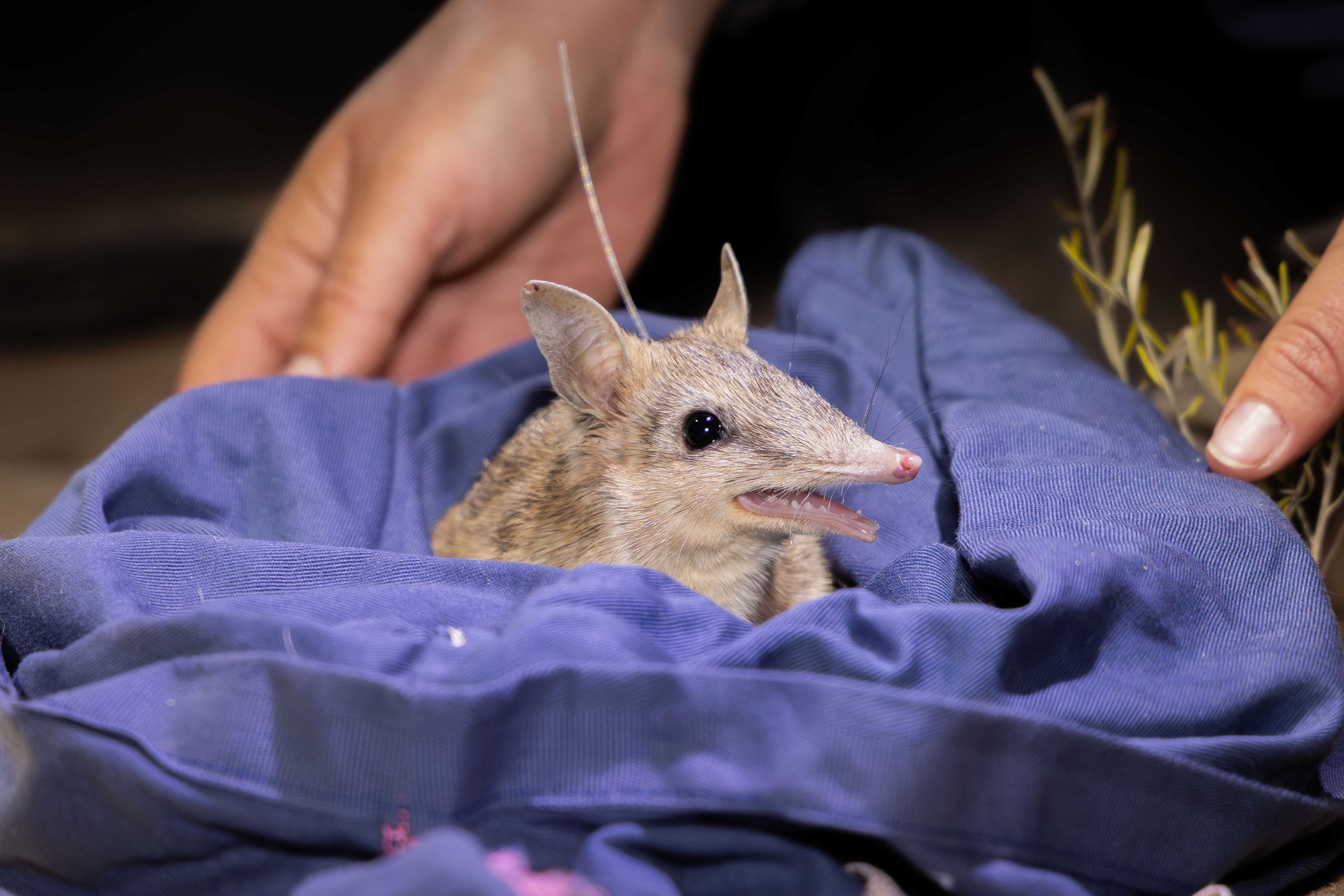Government back-tracks on fish highways in the Central-Darling
Ailish Dwyer
22 July 2025, 3:40 AM
 The DCCEEW had planned to create these rock stamp structures on sections of existing weir sites at Louth, Banarway, Calmundi and Tilpa. [IMAGE: DCEEW]
The DCCEEW had planned to create these rock stamp structures on sections of existing weir sites at Louth, Banarway, Calmundi and Tilpa. [IMAGE: DCEEW]After massive backlash from communities along the Central-Darling, the Department of Climate Change, Energy, the Environment and Water (DCCEEW) is holding further community consultations over their proposed ‘Fish Passage: Reconnecting the Northern Basin Project’ in July and August.
The proposed 'Fish Passage: Reconnecting the Northern Basin Project' would use Commonwealth funding to reconnect waterways, allowing native fish to migrate and flourish by installing rock-ramp fishways on sections of existing weir sites at Louth, Banarway, Calmundi and Tilpa.
It also involves a reduction in weir height to recreate 506 kilometres of water ‘highways’ for native fish in the Barwon-Darling River system.
The fish highways (or 'fishways') are supposed to significantly boost breeding opportunities for native fish.
Walgett Shire Council raised concerns about the potential impacts of the project, particularly the proposed modifications to the Banarway and Calmundi weirs which could significantly reduce local water storage during dry periods.
A council report said many in the community felt concerned about the weir reduction, especially because Walgett came close to running out of water during a drought event in 2019.
Walgett Shire Mayor Jasen Ramien vowed to "fight to the end" against the plan.
“We are not interested in discussing any reduction in a weir pool. There is no stakeholder along this river who will stand by and accept a reduction," he said.
"We will fight to the end. We will not accept a reduction in the weir pool or water security for the Walgett Shire.”

Walgett Shire Mayor Jasen Ramien. [IMAGE: Walgett Shire Council]
After backlash from the community, the DCCEEW are now proposing a much smaller reduction in weir height: only lowering a small section of each weir by 100 mm instead of the 400 mm that was first proposed.
Nature Conservation Council of NSW water campaigner Mel Gray said the fishways would be vital for securing the future of native wildlife in the basin.
"It's been a long time and there's been a lot of delays. But now we're seeing some of these fishways progress, and it's really important," she said.
Since European settlement, there's been an estimated 90 per cent decline of native fish and waterbird species in the Murray Darling basin.
While residents have expressed concern about the effects the weir could have on water supply, Mel says ensuring the flow of the river would give towns a quality supply.
"The answer to town water security along the Barwon-Darling is to ensure there are enough flows coming out of the NSW tributary rivers to provide the base flows and pulses the river needs," said Ms Gray.
"Building off-river water storage dams would be a win-win, freeing up the river for natural flows while providing better water security for towns in dry times.
"Filling off-river storage dams for town water when there are high flows in the river means less impact on low flows, which are essential for fish movement, habitat connectivity, and preventing catastrophic water quality events like algal blooms and fish kills.
"Off-river town water storage dams would let all low flows remain in the Barwon-Darling River.
This supports ecosystem health, respects Indigenous cultural connections, and secures water supplies without extracting from already-stressed low flows."

Water Campaigner Mel Gray. [IMAGE: The Daily Liberal]
A spokesperson from the DCCEEW advised the project wouldn't just involve fishway structures, but would also include remediating the four weirs to reduce water loss.
"During meetings with communities, we have heard loud and clear there is concern about lowering the height of weirs and any reduction in local water storage is not acceptable," they said
"While a slight lowering of the weirs is needed to install partial rock-ramp fishways, we’ve revised the design so the reduction in height is only 100mm, far less than the original 400mm proposal.
"It’s important to remember these structures are leaking, and millions of litres of water are currently lost every year as a result."
The DCCEEW is hosting several community consultations sessions over the next month in Tilpa, Louth, Walgett and Collarenebri, plus virtual sessions for people who cannot attend in person.
Walgett Shire Council has advised that there will be council representatives at both Walgett and Collarenebri sessions.



